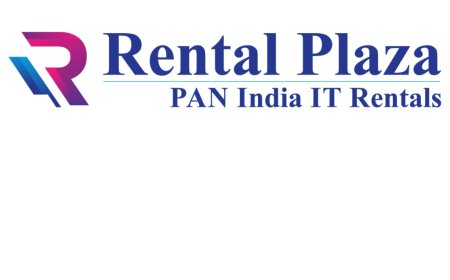Understanding Commercial Mortgages in Ontario: A Comprehensive Guide
Whether you're looking to purchase office buildings, retail spaces, industrial warehouses, or multi-family residential complexes, understanding the nuances of commercial mortgages ontario is essential for making informed financial decisions.

In the dynamic landscape of Ontarios real estate market, commercial mortgages play a pivotal role for investors, business owners, and property developers seeking to finance commercial real estate ventures. Whether you're looking to purchase office buildings, retail spaces, industrial warehouses, or multi-family residential complexes, understanding the nuances of commercial mortgages ontario is essential for making informed financial decisions. This comprehensive guide delves into the intricacies of commercial mortgages in Ontario, covering everything from the basics to advanced considerations, and addressing frequently asked questions to equip you with the knowledge needed to navigate this complex sector confidently.
What Are Commercial Mortgages?
A commercial mortgage is a loan secured by a commercial propertysuch as office buildings, retail centers, industrial facilities, or multifamily residential complexesused to finance its purchase, refinancing, or renovation. Unlike residential mortgages, commercial mortgages typically involve larger sums, shorter loan terms, and different lending criteria. The primary purpose is to enable businesses and investors to acquire or improve income-generating properties that can generate revenue and appreciate over time.
The Significance of Commercial Mortgages in Ontario
Ontario, as Canada's most populous and economically diverse province, presents a vibrant market for commercial real estate. The province's robust economy, population growth, and urban development contribute to a consistent demand for commercial properties. Commercial mortgages in Ontario serve as vital financial tools that facilitate business expansion, urban renewal, and infrastructure development.
For investors, securing a commercial mortgage can lead to substantial returns through rental income and property appreciation. For business owners, these loans provide the capital necessary for strategic growth and operational efficiency. Given the scale and complexity of such transactions, understanding the specifics of commercial mortgages in Ontario is crucial for maximizing benefits and minimizing risks.
Types of Commercial Mortgages in Ontario
Understanding the different types of commercial mortgages available in Ontario helps borrowers select the most suitable financing option:
-
Traditional Commercial Mortgages
These are standard loans where the property itself serves as collateral. They typically feature fixed or variable interest rates and are repaid over a term ranging from 5 to 20 years. These mortgages are suitable for purchasing income-generating properties with stable cash flow. -
Interest-Only Loans
Borrowers pay only the interest during the initial period, usually 3-5 years, with principal payments deferred. These are attractive for investors seeking tax advantages or those planning to refinance or sell before the principal repayment begins. -
Bridge Loans
Short-term financing used to bridge the gap between the acquisition of a property and securing long-term financing. They are often used in quick transactions or redevelopment projects. -
Construction Loans
Finances the building phase of a project. Once construction is complete, the loan can be converted into a permanent mortgage. -
SBA or Government-Backed Loans
While more common in the United States, Ontario also offers government-backed financing options for certain types of commercial real estate projects, aimed at supporting small businesses and economic development.
The Commercial Mortgage Lending Process in Ontario
Securing a commercial mortgage in Ontario involves several steps, each crucial for ensuring a successful transaction:
1. Pre-Approval and Financial Assessment
Potential borrowers should assess their financial position and get pre-approved. This involves providing documentation such as financial statements, credit reports, and details about the property and its income.
2. Property Evaluation and Due Diligence
Lenders conduct a thorough appraisal of the property, including its value, condition, and income potential. Due diligence also involves reviewing zoning laws, environmental assessments, and title searches.
3. Loan Application Submission
Borrowers submit a detailed application outlining the loan amount, purpose, repayment terms, and collateral details.
4. Underwriting and Approval
Lenders analyze the application, assessing the borrowers creditworthiness, the property's income stability, and market conditions. They determine the loan-to-value (LTV) ratio, typically ranging between 65% to 80% in Ontario, depending on the property type and borrower profile.
5. Loan Offer and Agreement
Once approved, the lender issues a formal offer, and both parties sign the mortgage agreement, outlining the terms, interest rate, repayment schedule, and Covenants.
6. Closing and Disbursement
The final step involves legal formalities, registration of the mortgage, and fund disbursement, enabling the borrower to complete the property transaction.
Key Factors Influencing Commercial Mortgage Rates in Ontario
Interest rates for commercial mortgages in Ontario are influenced by various factors:
- Creditworthiness of the Borrower:Strong credit history and financial stability typically lead to more favorable rates.
- Property Type and Location:Prime locations and stable income-generating properties usually attract lower interest rates.
- Loan-to-Value Ratio:Lower LTV ratios (meaning more equity invested by the borrower) often result in better rates.
- Loan Term and Amortization Period:Longer terms might carry higher rates, although they offer longer payment periods.
- Market Conditions:Economic stability, inflation, and central bank policies impact lending rates.
As of recent trends, commercial mortgage interest rates in Ontario typically range from 4% to 7% in dollars, depending on the above factors.
Down Payment and Loan-to-Value (LTV) Ratios
In Ontario, commercial mortgage lenders generally require a down payment or equity contribution ranging from 20% to 35% of the propertys purchase price. The loan-to-value ratio (LTV) commonly falls between 65% and 80%, with lower LTVs often translating into better loan terms and interest rates.
For example, purchasing a commercial property worth $1,000,000 might require a down payment of $200,000 to $350,000, with the mortgage covering the remaining amount. The higher the down payment, the lower the risk for the lender, which can result in more favorable financing conditions.
Repayment Terms and Amortization
Commercial mortgages in Ontario typically feature amortization periods ranging from 10 to 25 years, but the loan term itself might be shorter, often 5 to 10 years, with options to renew or refinance. Payments are usually structured as monthly installments covering principal and interest, although interest-only options can be available during initial periods.
Flexible repayment options enable borrowers to tailor their mortgage to their cash flow patterns and strategic plans. Early repayment or refinancing may involve penalties, so understanding the terms of the mortgage agreement is vital.
Benefits of Securing a Commercial Mortgage in Ontario
- Leverage and Growth:Enables property acquisition or development without tying up all available capital.
- Income Generation:Facilitates investment in income-producing properties, leading to passive cash flow.
- Tax Advantages:Mortgage interest payments can often be deducted as business expenses.
- Property Appreciation:Potential for property value increase over time, enhancing net worth.
- Portfolio Diversification:Allows investors to expand their real estate holdings and diversify investments,
Debt Consolidation in Ontario
Managing multiple debts can be overwhelming, especially when juggling different interest rates, payment schedules, and creditors. For residents of Ontario, debt consolidation offers a strategic solution to simplify finances, reduce interest costs, and regain control over financial health. This comprehensive guide explores everything you need to know about debt consolidation ontario, including its benefits, types, process, and frequently asked questions, all tailored to help you make informed decisions and achieve financial stability.
What Is Debt Consolidation?
Debt consolidation is a financial strategy that involves combining multiple debtssuch as credit card balances, personal loans, payday loans, or other liabilitiesinto a single, manageable loan or payment plan. By consolidating debts, individuals aim to lower their overall interest rates, reduce monthly payments, and streamline their repayment process.
In Ontario, debt consolidation can be achieved through various methods, including personal loans, home equity loans, balance transfer credit cards, or specialized debt management programs. The ultimate goal is to make debt repayment more affordable and less stressful, paving the way toward financial freedom.
FAQs about Commercial Mortgages in Ontario
Q1: What is the typical interest rate for commercial mortgages in Ontario?
Interest rates usually range between 4% and 7%, depending on the borrowers credit profile, property type, and market conditions.
Q2: How much down payment is required for a commercial mortgage in Ontario?
Most lenders require a down payment of 20% to 35% of the property's purchase price, translating to an LTV of 65% to 80%.
Q3: Can foreign investors qualify for commercial mortgages in Ontario?
Yes, foreign investors can qualify, but they may face additional scrutiny and higher down payment requirements.
Q4: What are the common loan terms for commercial mortgages in Ontario?
Loan terms typically range from 5 to 10 years, with amortization periods up to 25 years, but these can vary based on lender policies.
Q5: Is it possible to refinance a commercial mortgage in Ontario?
Yes, refinancing is common, especially to access better rates, consolidate debt, or fund new projects. However, approval depends on market conditions and property performance.
Q6: What factors influence the approval of a commercial mortgage application?
Key factors include creditworthiness, property income stability, location, property type, and overall market conditions.
Q7: Are there government programs supporting commercial real estate financing in Ontario?
While direct government-backed commercial loans are limited, there are programs aimed at supporting small businesses and development projects.
Final Thoughts
Navigating the world of commercial mortgages in Ontario requires a comprehensive understanding of the lending landscape, property market dynamics, and strategic financial planning. Whether you're an investor looking to expand your portfolio or a business owner seeking to secure premises for growth, understanding the key aspectssuch as loan types, rates, terms, and risksis fundamental to making sound decisions.
By leveraging the right financing options, maintaining excellent financial health, and staying informed about market conditions, you can harness the power of commercial mortgages to achieve your real estate and business objectives. Remember, consulting with experienced financial advisors or mortgage specialists familiar with Ontarios market can provide tailored guidance to optimize your investment outcomes.

























































